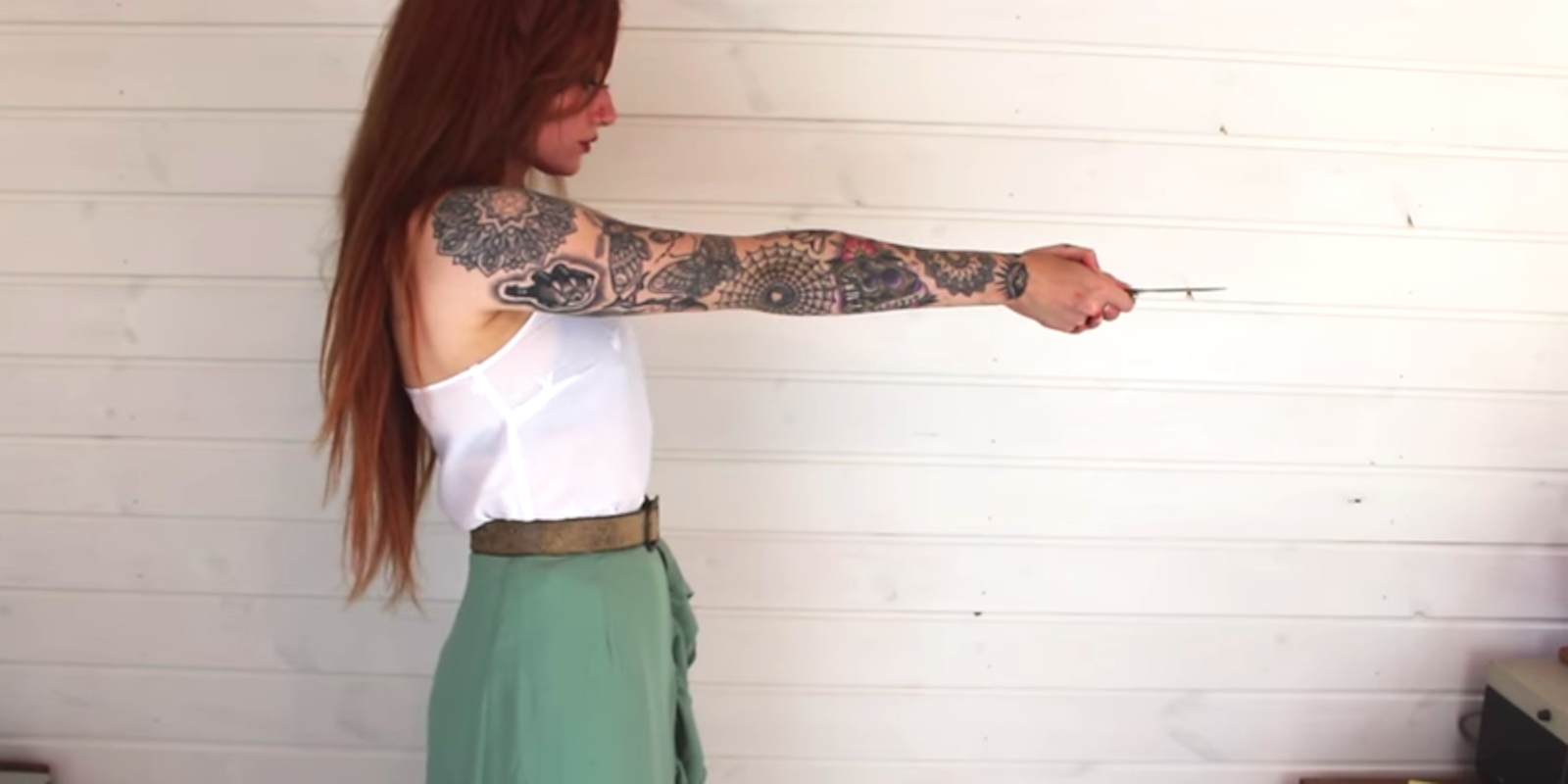For the past few years, we’ve been enjoying an extended season of the witch, magical proclivities having gained quite a bit of pop culture traction. While the sudden flood of amateur interest may frustrate legitimate, long-practicing witches, it doesn’t show any signs of stopping anytime soon. Which means demand for primers on the basics, like Wiccans—what do they believe? Are all Wiccans witches and vice versa? Might I be a Wiccan and not even know it? What even is Wicca, anyway?
Well. Wicca, a pagan belief system centered on the worship of the natural and, often, of a God and a Goddess, emphasizes a strong connection with the earth and derives magic from it. Because magic is central to Wicca, according to Witchcraft.org, every Wiccan is a witch but not every witch is a Wiccan.
Although Wicca is a decentralized religion often led by solitary practitioners, there are a few central tenets that dictate the Wiccan belief system, at least in the United States. At a 1973 conference of more than 70 Wiccans from different Wiccan subsets, the temporarily convened Council of American Witches hammered down 13 core principles that many U.S. Wiccans still recognize decades later.
A beginner’s guide to Wicca and Wiccan beliefs
What do Wiccans believe?
Wicca is hardly a staunch or strict belief system— and that’s a huge part of what gives Wiccan beliefs mass appeal to people of diverse religious backgrounds. It’s not uncommon for individual practitioners or covens to write their own interpretations of the Wiccan code of conduct. However, as in any religion, there are a few key rules and principles that most all Wiccans stick to, whether they practice alone or in a coven. There are two key rules that are typically the most important:
1) Wiccan Rede
Originally part of a 26-line poem, the Wiccan Rede outlines the key moral system in Wicca. It reads “An it harm none, do what ye will.” It has also been written as “That it harm none, do as thou wilt.” In most interpretations, it’s similar to the “golden rule”—treat others as you’d like to be treated.
2) Rule of Three
The Wiccan three-fold law isn’t just a tenet of Wiccan beliefs. The idea is that whatever energy you put out into the world, spiritual or otherwise, it will come back to you three times. This is also often referred to as karma.
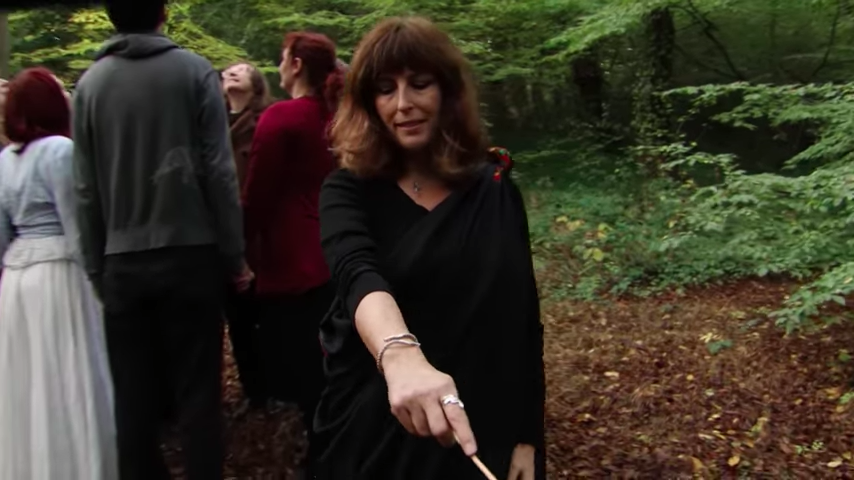
The 13 principles of Wicca
According to Pagan Path, the 13 principles of Wicca are these:
-
We practice rites to attune ourselves with the natural rhythm of life forces marked by the phases of the Moon and the seasonal Quarters and Cross Quarters. Usually in the form of Sabbat and Esbat celebrations.
-
We recognize that our intelligence gives us a unique responsibility toward our environment. We seek to live in harmony with Nature, in ecological balance offering fulfillment to life and consciousness within an evolutionary concept.
-
We acknowledge a depth of power far greater than that apparent to the average person. Because it is far greater than ordinary it is sometimes called “supernatural”, but we see it as lying within that which is naturally potential to all.
-
We conceive of the Creative Power in the universe as manifesting through polarity as masculine and feminine and that this same Creative Power lies in all people, and functions through the interaction of the masculine and feminine. We value neither above the other, knowing each to be supportive of the other. We value sex as pleasure, as the symbol and embodiment of life, and as one of the sources of energies used in magickal practice and religious worship.
-
We recognize both outer worlds and inner or psychological worlds sometimes known as the Spiritual World, the Collective Unconscious, Inner Planes, etc.-and we see in the interaction of these two dimensions the basis for paranormal phenomena and magickal exercises. We neglect neither dimension for the other, seeing both as necessary for our fulfillment.
-
We do not recognize any authoritarian hierarchy but do honor those who teach, respect those who share their greater knowledge and wisdom, and acknowledge those who have courageously given of themselves in leadership.
-
We see religion, magick, and wisdom in living as being united in the way one views the world and lives within it—a worldview and philosophy of life which we identify as Witchcraft-the Wiccan Way.
-
Calling oneself “Witch” does not make a Witch—but neither does heredity itself, nor the collecting of titles, degrees, and initiations. A Witch seeks to control the forces within her/himself that make life possible in order to live wisely and well without harm to others and in harmony with Nature.
-
We believe in the affirmation and fulfillment of life in a continuation of evolution and development of consciousness giving meaning to the Universe we know and our personal role within it.
-
Our only animosity towards Christianity, or toward any other religion or philosophy of life, is to the extent that its institutions have claimed to be “the only way” and have sought to deny freedom to others and to suppress other ways of religious practice and belief.
-
As American Witches, we are not threatened by debates on the history of the Craft, the origins of various terms, the legitimacy of various aspects of different traditions. We are concerned with our present and our future.
-
We do not accept the concept of absolute evil, nor do we worship any entity known as “Satan” or “the Devil”, as defined by Christian tradition. We do not seek power through the suffering of others, nor accept that personal benefit can be derived only by denial to another.
-
We believe that we should seek within Nature that which is contributory to our health and well-being.
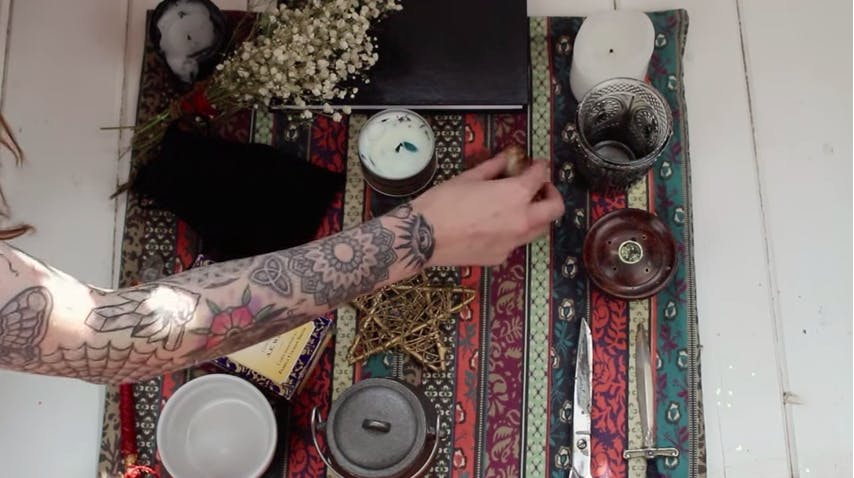
READ MORE:
- A plain and simple guide to understanding consent
- The best self-care tips and ideas
- Everything you have never understood about being nonbinary
- What is social justice? The rise of the social justice warrior
Variations in belief
According to ReligiousTolerance.org, there are still variations in Wiccan beliefs depending on the individual practicing. Some worship only one deity, often the Goddess alone, some worship a full spectrum of pagan gods, some see the universe itself as a god, some question the existence of a deity, and some flat-out don’t buy into any kind of God at all.
One common misconception is that Wiccans worship the devil, when in fact they have no equivalent to Catholicism’s hell-bound overlord. Unifying Wiccan beliefs include gender equality, the power of human sexuality, respect for nature, and certain latitude in personal autonomy—so long as doing what you want doesn’t harm anyone else. Practicing Wiccans also believe in the law of karma, which is to say, whatever good or bad thing a person does will come back to them thrice as strong.
What is witchcraft?
Witchcraft, distinctly different from Wicca, is “the magical manipulation of energy to bring about change,” in the words of my new favorite website, Witchipedia. Witches might derive that power from nature—think crystals, herbs, plants, feathers—or from themselves, but regardless, they practice magic by casting spells and performing rituals.
While often tied to lunar cycles and the position of the sun and planets, witchcraft isn’t inherently Wiccan, because it’s not a belief system per se. Rather, witchcraft is a physical series of actions and ceremonies conducted to achieve specific ends. A witch might cast a circle, accented with candles and stones and sigils, and perform sex magic, for example, without necessarily subscribing to a Wiccan worldview. Witches might belong to any religion—although Christianity has been infamously hostile to their existence—and still practice magic.
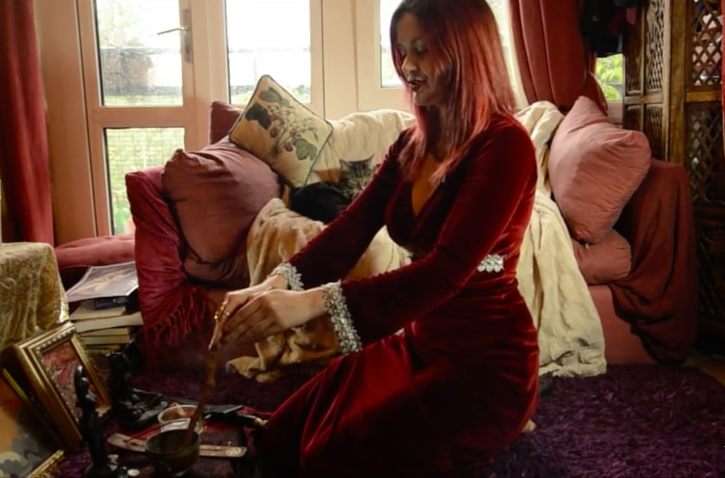
READ MORE:
- The dirty, complex, empowering history of the word ‘queer’
- What it means to be transgender
- Lucid dreaming is real—so why not control your fantasies?
- When was birth control invented? A brief history of the pill
Are there Wiccan holidays?
Many Wiccans refer to the Wheel of the Year, which represents an annual cycle of seasonal festivals observed by Pagans. Solstices and equinoxes mark the significant holidays throughout the year, which Wiccans also refer to as sabbats.
Yule
The winter solstice marks Yule every year, but the exact date varies. Depending on the Gregorian calendar, Yule could fall between Dec. 20 and Dec. 23. According to Wicca.com, the Yule tradition celebrates the rebirth of the sun by lighting a Yule log, which is meant to burn throughout the first night of solstice and smolder for 12 days. Many of the Pagan traditions of Yule are identified with Christmas today, like hanging mistletoe, poinsettias, evergreen boughs and holly decorations, and decorating a Christmas tree.
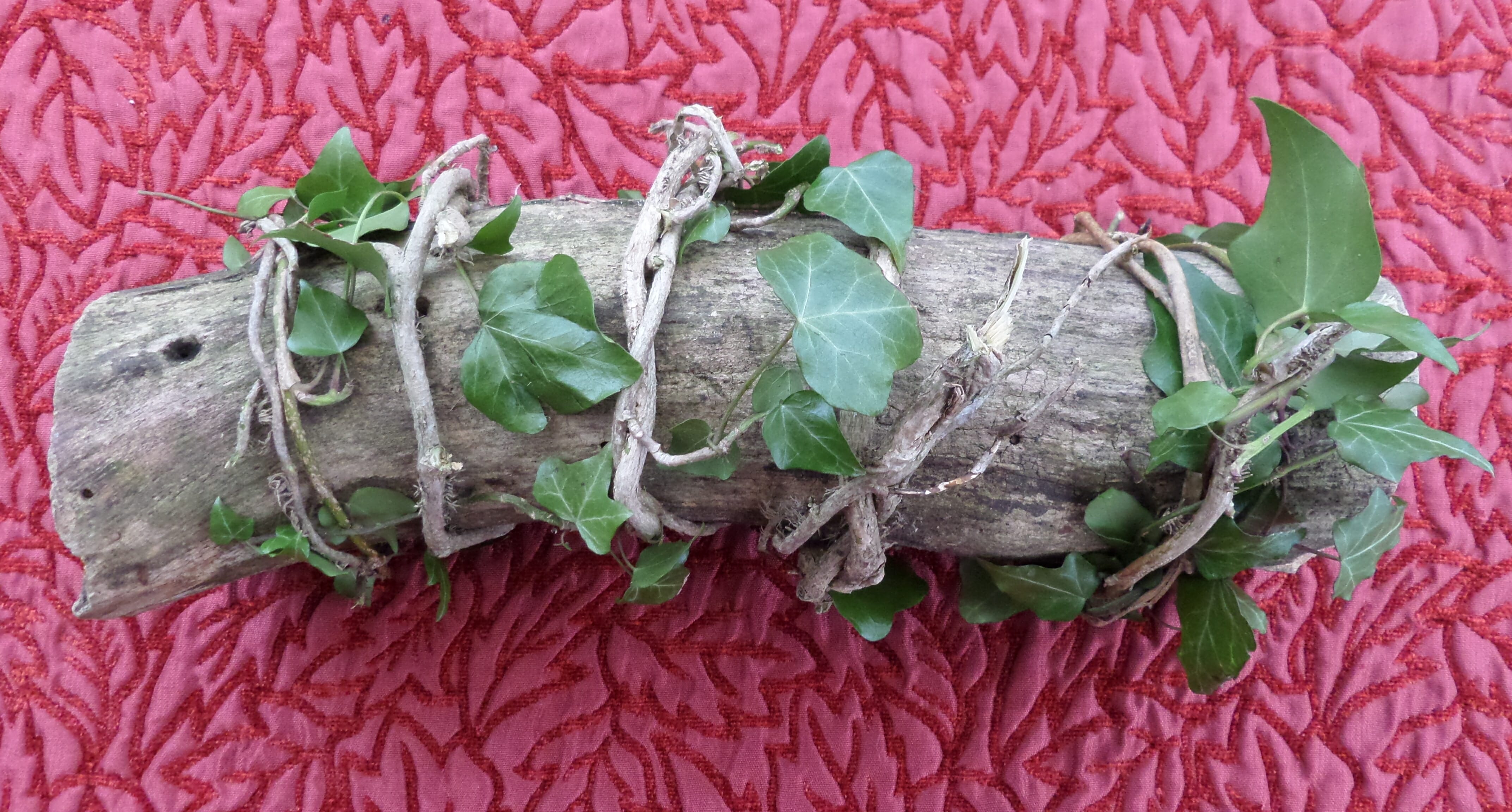
Samhain
Probably the biggest and most important Wiccan holiday, Samhain is celebrated on Oct. 31 and is also known as All Hallow’s Eve, Hallows, or the Feast of the Dead, according to Wicca.com.
It is a magical interval when the mundane laws of time and space are temporarily suspended, and the Thin Veil between the worlds is lifted. Communicating with ancestors and departed loved ones is easy at this time, for they journey through this world on their way to the Summerlands.
Some of the most recognizable traditions of Samhain include leaving food offerings and altars for the wandering dead, dressing in costume, playing tricks or pranking one another, and celebrating with a large bonfire.
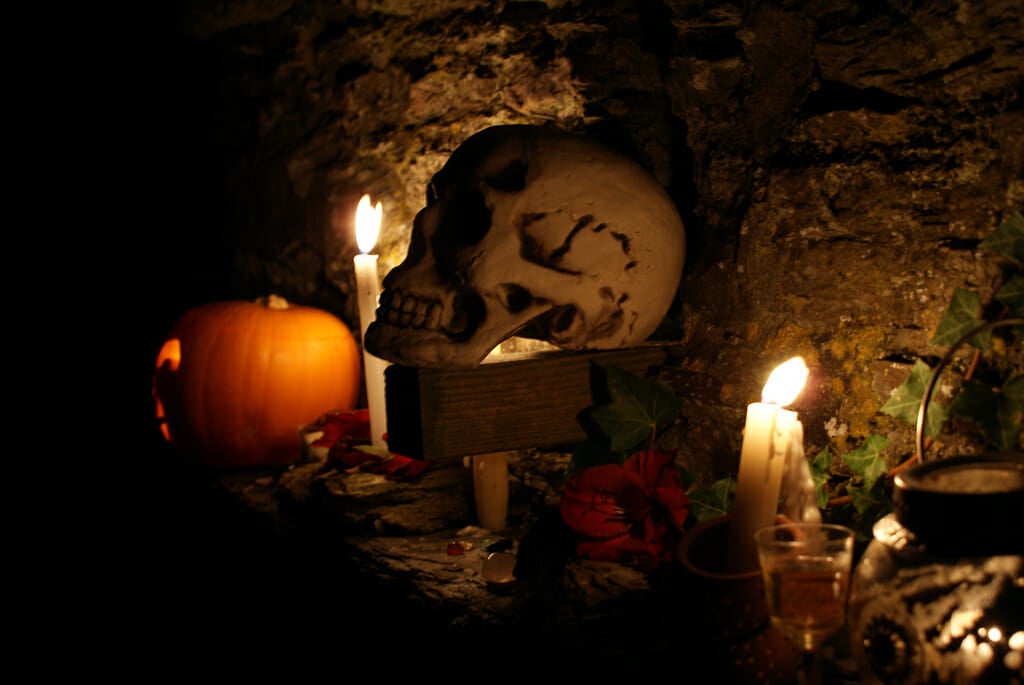
There you have it. Happy hexing.
Editor’s note: This article is regularly updated for relevance.

